Hybrid working – survey insights
The great working from home and hybrid working experiment continues. But how is it working out, for businesses and for all of us as individuals? Has a “new normal” been established?
To help answer these questions, Eden McCallum surveyed around 500 UK office workers and 200 business leaders to discover their attitudes to hybrid working. The results have revealed a good deal of positivity about these new ways of operating, but also some different perspectives on what might work best, both for individuals and their organisations.
A key finding is that the pandemic has had a more dramatic impact on business leaders’ working lives than on those of office workers. Almost 90% of business leaders are working from home more often due to the pandemic, compared to 62% of office workers.
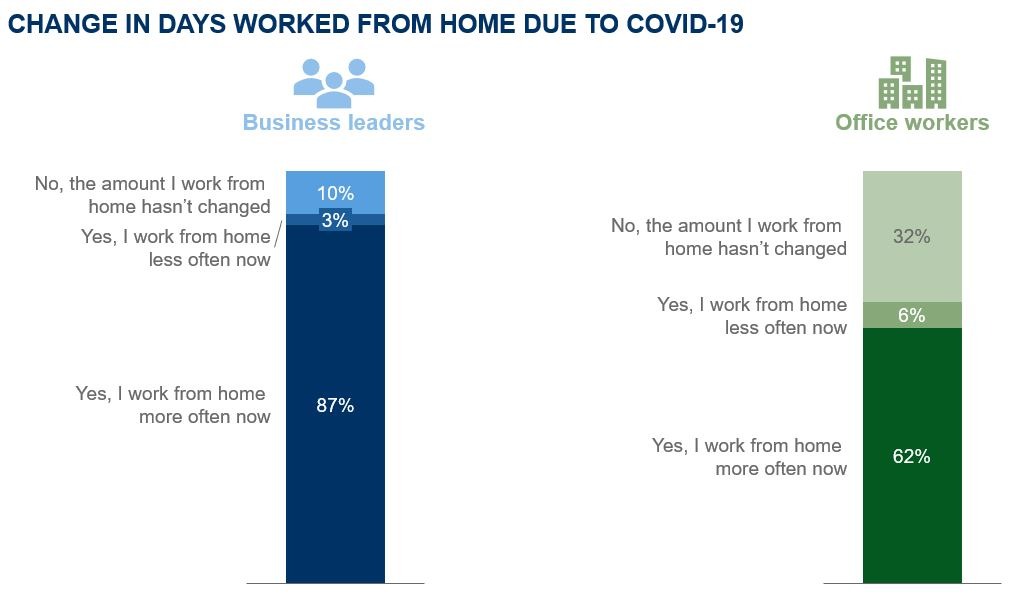
The gap between leaders and office workers is also reflected in hybrid working policies and preferences. While the survey showed that most respondents are working on a hybrid basis, this was more pronounced for business leaders. Almost 9 in 10 business leaders say their companies have a hybrid working policy, compared to only 6 in 10 office workers, which perhaps highlights a difference in perceptions about choice and flexibility. And 4 in 10 office workers say they are working (or would prefer to work) fully remotely or in the office.
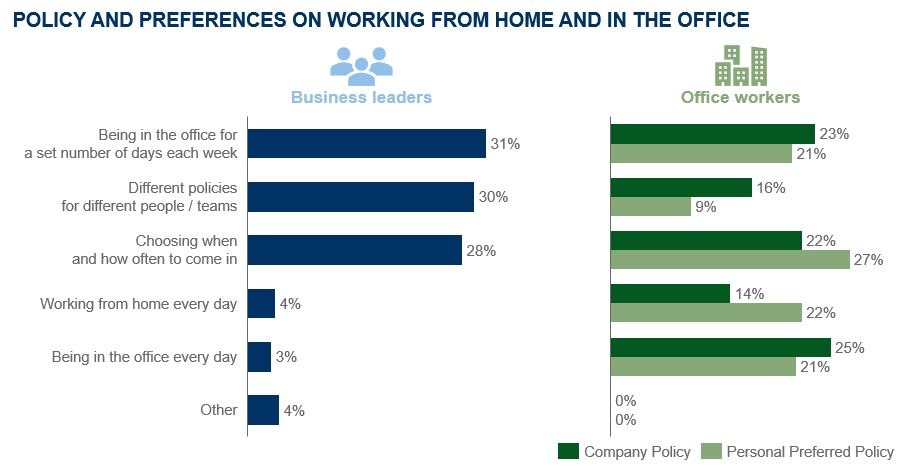
So, what are the perceived benefits and downsides of hybrid working? Here we continue to find differences of opinion (and experience) between leaders and workers. Business leaders – 90% of them – love the commuting time saved by working at home. Office workers recognise this factor too, but not to quite such an extent – 61% of them do so. Both leaders and workers like the flexibility of hybrid working – 63% of bosses say so, as do 49% of office workers. Both are finding they have more time for their family and personal life (54% of business leaders, 34% of office workers). And both say they are more efficient and productive at home (49% of business leaders say so, 32% of office workers).
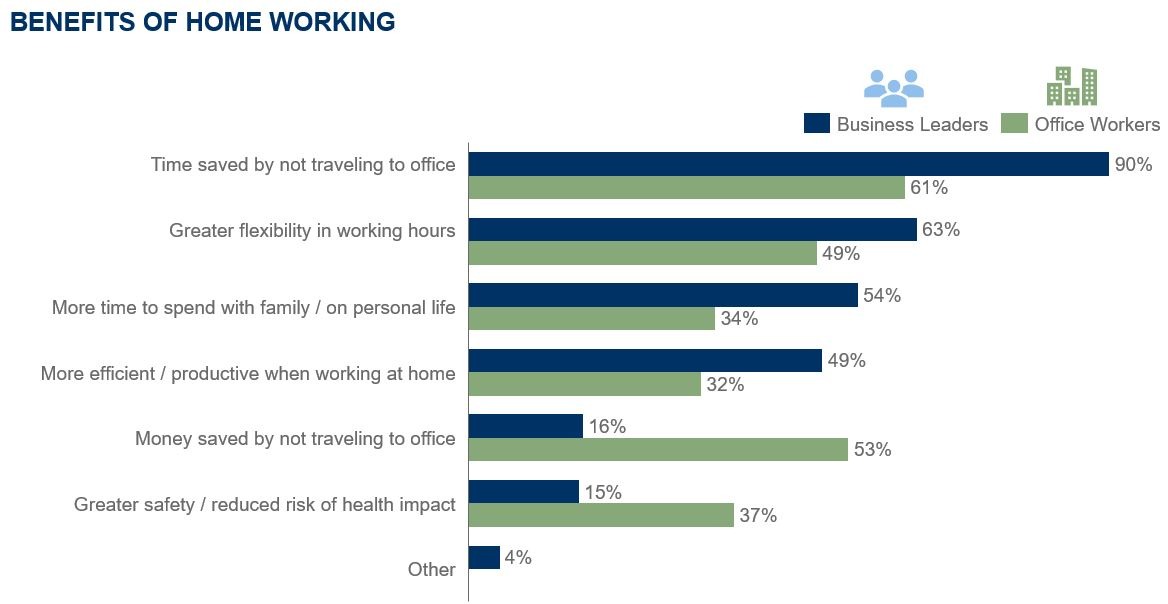
But there are some big differences as well, which those running companies need to be aware of. For office workers, the money saved on not commuting is seen as a benefit by 53% (second highest after time saved commuting). For leaders this is less significant (16%). Similarly, the greater safety from a health perspective is seen as beneficial by 37% of office workers but only 15% of business leaders.
The greater emphasis on time and productivity from business leaders is perhaps not surprising, as they are more likely to work longer hours when at home (54%) compared to office workers (39%).
When it comes to the downsides, business leaders miss their colleagues more than office workers do! For leaders, lack of social interaction with colleagues is a problem according to 81%, but only 59% of office workers share this concern. 70% of leaders find it harder to connect with colleagues in different teams and departments, but only 46% of office workers do so. In contrast, 25% of office workers are concerned about the space at home for working, compared to only 8% of their bosses.
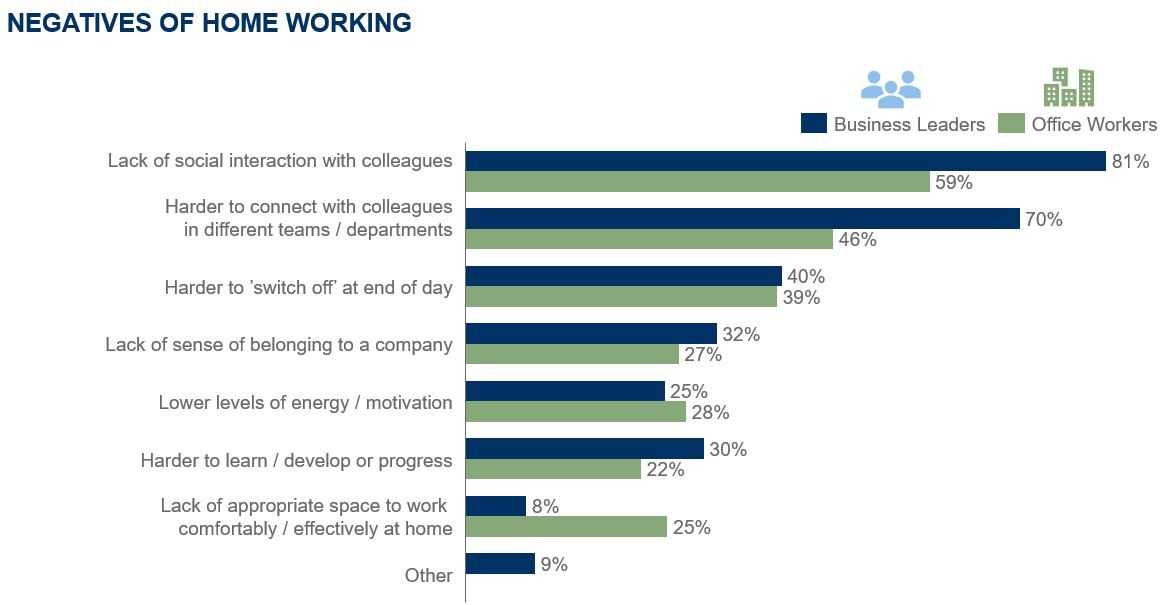
Considering the overall impact of hybrid working, business leaders tend to be more positive, particularly on a personal level. Leaders think hybrid working is positive for them personally (87%) and for their company (68%). Office workers feel similarly as far as the company is concerned (64%) but as individuals only 70% are positive.
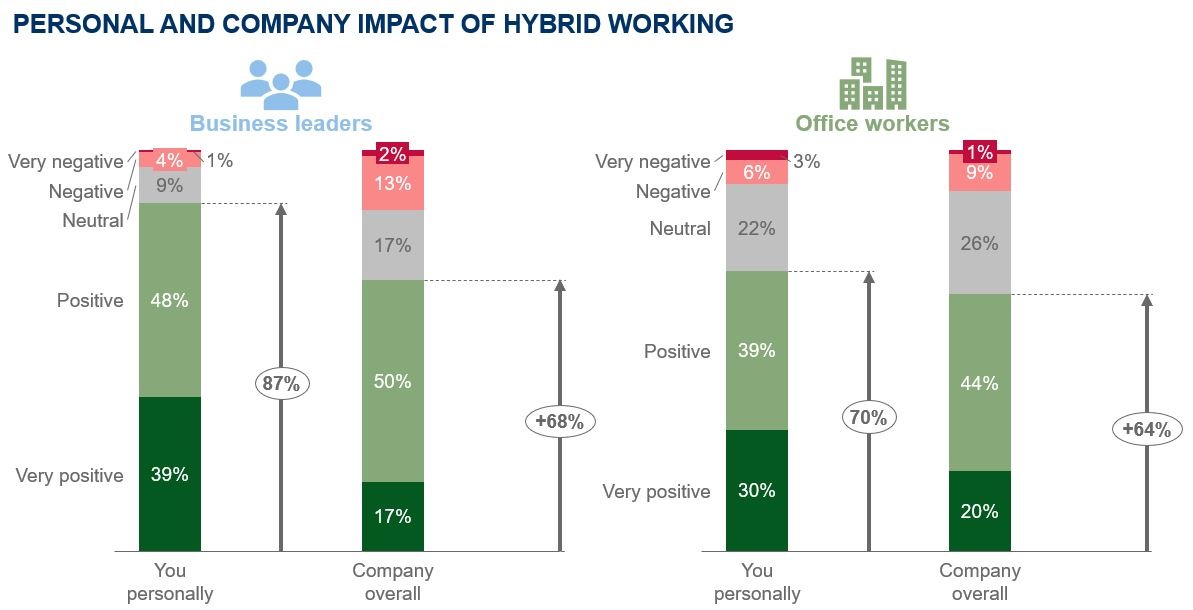
What will the impact be of the new world of hybrid working on the labour market? Around 30% of office workers are considering leaving their job in the next 6-12 months, with the most important reasons being salary and work-life balance. When they do change job, having the flexibility to work from home at least some of the time will be an important factor for around 60% of office workers.
The labour market could also be opened up and given a boost by increased flexibility of matching of supply and demand across the country. Around 60% of office workers would consider looking for a job anywhere in the country if they had the flexibility to work from home, and most business leaders are likely (72%) to be open to hire employees on that basis. As for providing a positive workplace today, flexible working hours and mental health support are seen as the most important measures employers can take to support home workers.
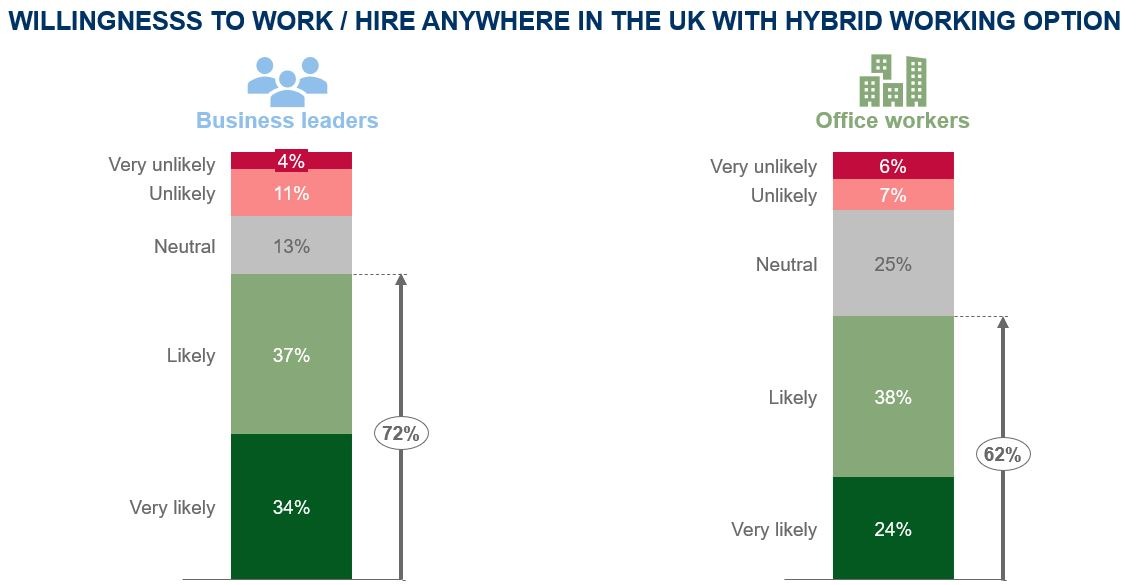
Sara Ghazi-Tabatabai, a Partner at Eden McCallum, says the findings of this latest survey are positive, but there are important distinctions to be made. “Business leaders in particular seem very clear that hybrid working is here to stay, and they are not going to go back to the old ways of doing things,” she says. “Office workers also recognise some of the benefits of hybrid working, but their perspective is not quite the same. The leadership and management challenge now is to make sure businesses share an understanding of how hybrid working can be made to operate well and for everyone’s benefit.”
To view the full results, please click here and follow us on LinkedIn to remain updated.

